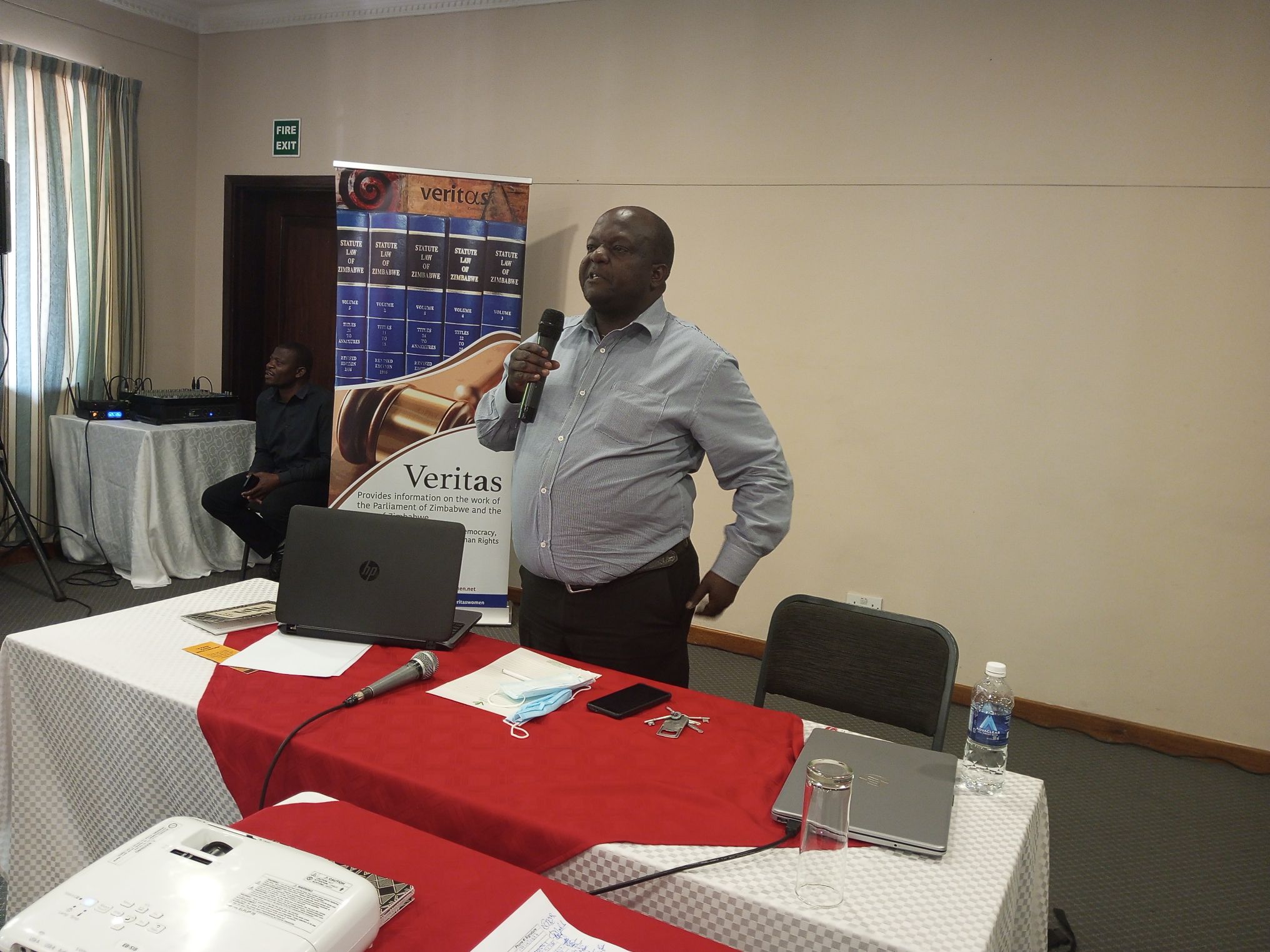|
Getting your Trinity Audio player ready…
|
Veritas, a Non-Governmental Organization has called for the abolishment of the Death Penalty with Zimbabwe having 62 prisoners awaiting capital punishment.
Zimbabwe will join other nations in commemorating World Day Against the Death penalty. Observed every 10 October, the World Day Against the Death Penalty unifies the global abolitionist movement and mobilizes civil society, political leaders, lawyers, public opinion, and more to support the call for the universal abolition of capital punishment. The day encourages and consolidates the political and general awareness of the worldwide movement against the death penalty.
Speaking during a media training for Editors and Senior reporters organized by Veritas, Commissioner Wellie Risiro from Zimbabwe Prison and Correctional Services (ZPCS) said they are against the death penalty as it is a laborious procedure.
“Before the person is hanged the court process is quite long and also it passes through parliament which makes the process so tiresome. So we also call for the abolishment of the Death penalty in Zimbabwe,” said Commissioner Risiro.
Despite the government’s frantic efforts to recruit a hangman, Zimbabweans have frowned upon the job offer even though unemployment is above 90 percent with human rights advocators citing the procedure as inhuman.
“The position of the Minister of Justice, Legal and Parliamentary Affairs is that we don’t have a hangman. The Ministry of Justice will deploy once they have a hangman and ideally, we will be more comfortable without the death sentence,” he added.
ZPCS is facing a myriad of challenges from inadequate health facilities to a shortage of medical staff.
“We have a department which is responsible for rehabilitation which has qualified psychologist, sociologist and psychiatric nurses who devote their time to talk to inmates and we are failing to find psychiatric doctors,” he said.
His Excellency the President of Zimbabwe ED Mnangagwa has strongly opposed the death penalty for many years. In February 2016, at a conference in Rome, he said.
“Having survived the death penalty myself, I know the tribulations faced by those on death row. The moment a sentence is pronounced that you are going to die by hanging, the whole world collapses on you. The death penalty is, in fact, a flagrant violation of the right to life and dignity,” he said.
Traditional leaders have urged the Government to abolish the death penalty, saying it is not cultural but a relic of the colonial era. At a conference organized by the Zimbabwe Association for Crime Prevention and Rehabilitation.
“We as Chiefs have concluded that killing is not an acceptable form of punishment. When you kill, you only kill the person leaving the spirit which caused him to kill behind,” the chief’s led by Chief Fortune Charumbira, the President of the Chiefs’ Council, who is also the President of the Pan African Parliament (PAP) said.
Veritas said the torture and other ill-treatment experienced during the long death penalty road are varied and numerous.
Physical or psychological torture has been applied in many cases during questioning to force confessions to capital crimes. The death row phenomenon contributes to the long-term psychological decline of a person’s health. The harsh death row living conditions contribute to physical deterioration.
On the other hand, there is mental anguish from anticipating execution. Methods of execution cause exceptional pain and suffering for family members and those with a close relationship with the executed person.
There is also discrimination based on sex, gender, poverty, age, sexual orientation, and religious and ethnic minority status. The death sentence can compound cruel, inhuman, and degrading treatment of individuals sentenced to death.
